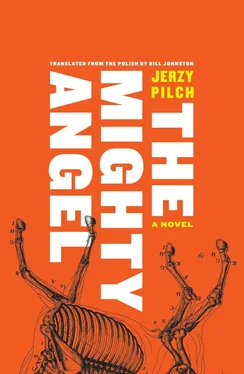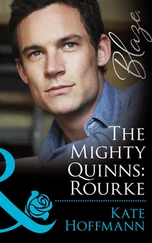“The two of you can do whatever you like,” he said, and immersed himself once again in his delusions of privatization.
The old man did not regret his decision. His future son-in-law proved to be a capable pharmacist, and the mint liqueur that he made with surgical spirit, according to an old recipe, was a real treat. When the Queen of Kent drank a glass on her name-day (the first glass of alcohol she had ever consumed in her life), the stifling mesh of shyness was removed, and her eternal fear of nothing in particular vanished.
•
He proposed; she drank a glass of mint liqueur and said yes. They made love for the first time on the small pharmacy sofa during the night shift; she had drunk a glass of liqueur before. After, it was also always before: after, whenever they made love she would drink a glass of liqueur before. A year later she would also drink a glass of liqueur when they did not make love; two years later she would drink a glass of liqueur on any occasion, and three years later she was drinking liqueur in every free moment. After four years he stopped making the liqueur according to the old recipe. This made little difference to her; for some time now she had preferred straight spirit.
They had gotten married two years earlier (during the phase in which she drank liqueur on any occasion). As she went on drinking surgical spirit she gave birth to four daughters; he still loved her. He was tender and solicitous; he did better and better, importing hard-to-get foreign medications. When his father-in-law died he took over as manager of the pharmacy, and after the fall of communism he became its owner. He looked after his daughters and when they grew up he provided them with handsome dowries; besides which, all four married very well.
The Queen of Kent drank pure spirit; one day her shyness returned. Yet this was no longer the former frail mesh of bashfulness but rusty iron bars. In the early morning she would look in the mirror, but she was so far away she could not even see herself; she could not make out the storm of dark hair that had turned to ash.
“If that happens you should hang up without saying a word,” she would answer, brushing off Don Juan the Rib’s insistent questions. The latter would hang his head, go back to his room, lie on his bed, and play wistful melodies on his mouth organ.
Chapter 20. The Funeral of Don Juan
THE CEMETERY WHERE we buried Don Juan the Rib was picturesquely located on a hilltop, with a picturesque view of valleys and mixed woods; the whole of the Beskid Mountains could be seen. The funeral party stood for a long time around the open grave singing and playing various instruments.
Don Juan the Rib — hairdresser and additionally musician, as he was wont to introduce himself — came from a most musical family. All his brothers, sisters, male cousins and female cousins, and all his close and distant relatives were exceptionally musical, all had virtually perfect pitch and lovely singing voices, and could probably have played any instrument in the world. Some of them had taken their art to lofty levels; for instance, a female singer who was immensely popular that season was a distant cousin of Don Juan’s. She was known for her stylized Balkan Gypsy ballads, which she sang in a fine low voice, and for her risqué outfits and captivating beauty. She appeared at the funeral too, somewhat late, and even significantly so. We had already picked up the spades and were all set to shovel soil onto the casket, that smelled of denatured spirits, when a colorful procession appeared round a bend in the gravel path down below. It was led by the female singer who was immensely popular that season; she was wearing an extraordinarily low-cut black dress and was followed by four instrumentalists clad in peacock colors — a guitarist, a saxophonist, a trumpeter, and a drummer. The extraordinarily low-cut dress did not scandalize anyone; on the contrary, it was a mark of the high regard in which she evidently held her distant fallen kinsman. We all knew the dress. It was one of the most risqué of her outfits; the singer who was immensely popular that season wore it at her most important concerts, at festivals, on the television, and at the most prestigious indoor and outdoor venues in Poland and around Europe. She stopped by the open grave, leaned over, and crossed herself; almost immediately, without even tuning their instruments, her musicians began to play her great hit song, that everyone knew, about the silken scarf.
Starting from the second verse, all of Don Juan’s exceptionally musical relatives began to sing along; those who had instruments accompanied the musicians, and the great song of the silken scarf, of inconceivable sorrow, of love, despair, and the end of all things, drifted from the cemetery hill and was heard in the other world, in paradise, where the soul of Don Juan the Rib was already in angelic rapture among the tastefully half-dressed souls of approachable women.
I know what it was like when Don Juan was dying, though I was not there; I know the source of his pain. The people who broke down his door and found his body reported a certain strange detail. Namely, they reported that the apartment was in a state of disarray typical for the apartment of a drunkard, though in this case it was not excessive; yet one element in this disarray caught their eye. It was a pile of footwear that reached almost up to the ceiling. One entire corner of the room was filled with a mountain of slippers, sneakers, flip-flops, mules, leather and canvas shoes, sandals, overshoes, boots, snow-boots, and even clogs from the quondam heights of fashion.
Only a very naïve person, some unthinking teetotaler for example, could imagine that this was just another symptom of drunken disorder, that in his vodka-induced delirium Don Juan the Rib had simply been in the habit of removing his footwear and flinging it willy-nilly into the corner; after all, drunkards who remove their footwear methodically are in the minority, while the majority of drunkards remove their footwear in a haphazard manner. That is true, but first, Don Juan belonged precisely to the minority of drunkards who remove their footwear methodically, and second, he was someone who in general avoided disorder; after all, he was a hairdresser and a musician, and both an artful hairdo and a musical harmony represent the antithesis of all disorder.
•
Don Juan the Rib, for instance, unlike most drunkards did not remove objects from his home, but, on the contrary, he accumulated objects there. He neither sold nor threw out old furniture; Stalinist-era suits still hung in his closet, many of the kitchen utensils in his kitchen had been inherited from his ancestors and came from the beginning of the century, and the wedding ring from his only marriage still lay at the bottom of a drawer, though Don Juan was not quite as certain which drawer it was as he had been ten years ago.
That’s right — it was not only in recent times that Don Juan the Rib had drunk denatured spirit, yet he did so not out of ruination but because he enjoyed it. (As it happens, he prepared his denatured beverage according to his own special recipe, about which I will say more in a moment.) Don Juan the Rib, then, was a man who had fallen in a particular way; he was a paradoxical alcoholic, for what kind of alcoholic, other than a paradoxical one, would have so many pairs of shoes in his closet that, simply by throwing them, he could eventually cover up the terrible thing, the thing that was in the corner of the room.
I know only too well that the mysterious pyramid of shoes was not a sign of disorder. Its purpose was to drive away, or at the very least conceal, the thing that stank of shit; it was a sign of fear and trembling, it was the relic of a final struggle, a battlefield over which a crematorial pall still hung. I know, because I once heard you weeping, Don Juan, and I hear you still, and I see your eyes, which are like two craters of terror sunk into your skull. When at a certain moment you woke up, you did not yet believe, and you reached for the bottle at your bedside, and you drank what was left, and fell into the last drunken sleep of your life.
Читать дальше












